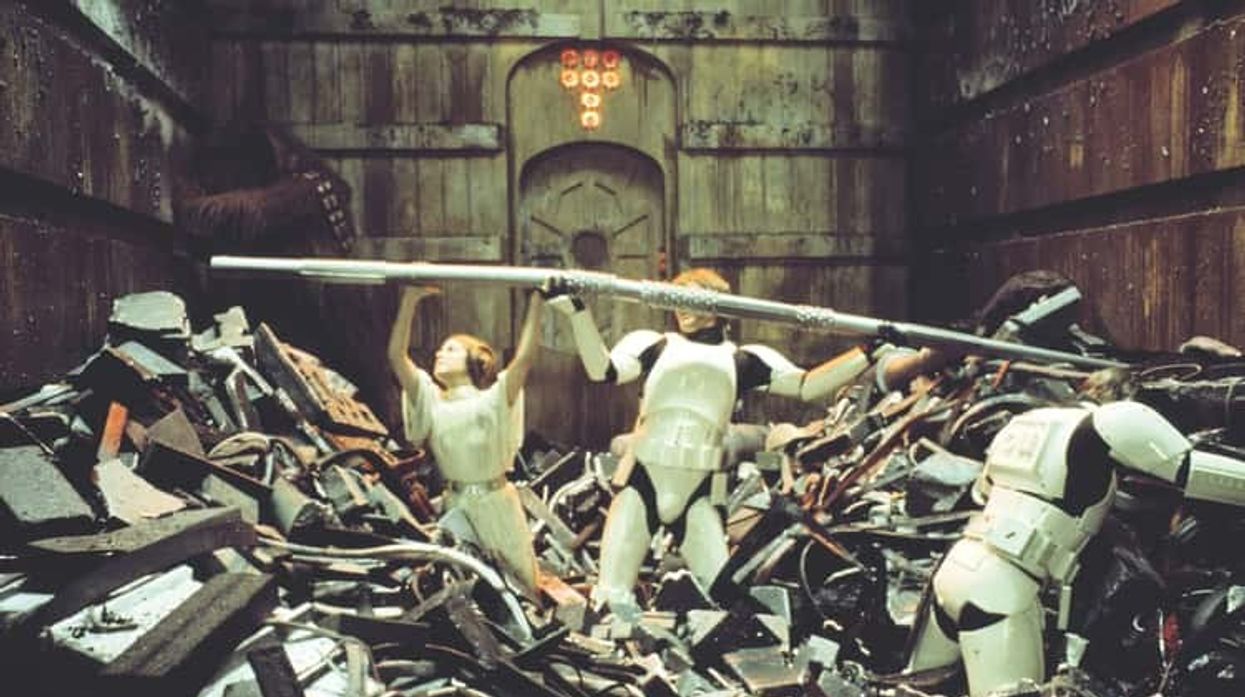Why Is Hollywood in a State of Contraction Right Now?
If it feels like things are tightening in Hollywood. Guess what? They are!

Over the last few years, it has felt like Hollywood is getting smaller, and not in a good way.
I've heard people complaining about fewer jobs, fewer opportunities, and the impossibility of breaking in.
We are feeling a contraction within the industry, and it's not just emotional. It's physically happening.
Hollywood, the global capital of the entertainment industry, has long been the symbol of glitz, glamour, and success. However, in recent years, the industry has been facing significant economic challenges and changes in consumer behavior disrupting the traditional model.
But what are the underlying causes of Hollywood's contraction? What does the future hold for the entertainment industry?
In this post, we'll explore the reasons why Hollywood is in a state of contraction right now, and what the industry can do to adapt to the changing landscape.
Let's dive right into this depressing topic!

What Do I Mean When I Say "Contraction"?
In business, contraction refers to a period of economic decline or reduction in the size or scale of a business or industry. Contraction can happen for many reasons, such as a decrease in demand for a particular product or service, increased competition, economic downturns, changes in consumer behavior, or a shift in market trends.
Why is Hollywood in a State of Contraction Right Now?
In Hollywood, we're seeing this from many different ends of the spectrum, and the results are a decrease in revenue and profits, layoffs, closures, and bankruptcies. So what are some of the main reasons this is happening?
1. The COVID-19 Pandemic
It honestly feels like COVID-19 has screwed us so many times. I'm honestly sick of writing about it (pun intended).
The pandemic has caused major disruptions to the film and television industry, with many productions being delayed or canceled, theaters closing down, and studios suffering significant financial losses. The pandemic has led to a decrease in demand for new content and a slowdown in production, which has affected the entire industry.
These losses have cost people jobs, and opportunities and shifted the entire market toward IP in an unflinching way. We've seen theaters suffer as well, disrupting the distribution chain in place for a hundred years.

2. Shifts in Consumer Behavior
People are not going to the movies as much. They're watching at home, and we are in an endless battle to get them back.
With the rise of streaming services and the changing viewing habits of audiences, Hollywood is facing stiff competition from other platforms such as Netflix, Amazon, and Hulu. These streaming services have disrupted the traditional distribution model of the entertainment industry, causing studios to rethink their strategies and adapt to a changing landscape.

3. High Production Costs
Making movies and TV has become a very expensive game. We've seen blockbuster budgets balloon, and many times they do not feel justified. These high budgets mean movies have to earn billions to be profitable. There's so much pressure on studios to make these tentpoles, they're leaving smaller titles behind.
These high costs have led to a decrease in the number of mid-budget films being produced as studios focus on investing in surefire box office hits.

4. Creative Stagnation
As I mentioned in my superhero post, we're seeing studios pass over original ideas in favor of proven IP. That makes people a little exhausted at the same stuff coming out over and over again. In film and TV, this is happening with countless reboots and spinoffs.
Hollywood has been accused of lacking originality in recent years, with many films and TV shows being sequels, reboots, or adaptations. This has led to a perception of creative stagnation, which can lead to a decrease in audience interest and revenue.
If we spent more on original ideas, mid or even low-budget ones, then there may be more opportunities for hits and to get people back to the theater, instead of big swings of the same stuff over and over.

Summing up Why Is Hollywood in a State of Contraction Right Now
In conclusion, Hollywood is facing a challenging period of contraction, with a combination of factors contributing to the economic and creative challenges the industry is currently experiencing.
From the COVID-19 pandemic to the rise of streaming services to high production costs to creative stagnation, Hollywood is being forced to rethink its traditional business model and find new ways to create and distribute content.
However, while the industry is currently facing significant obstacles, it has a long history of innovation and adaptation, and there is reason to believe that Hollywood will emerge from this period of contraction stronger and more resilient than ever before.
By embracing new technologies, exploring innovative distribution strategies, and investing in diverse, original content, Hollywood can remain a leading global hub of entertainment for many years to come.
Let me know your thoughts in the comments.

 'Sunfish (& Other Stories on Green Lake)'CREDIT: JWH Films
'Sunfish (& Other Stories on Green Lake)'CREDIT: JWH Films









